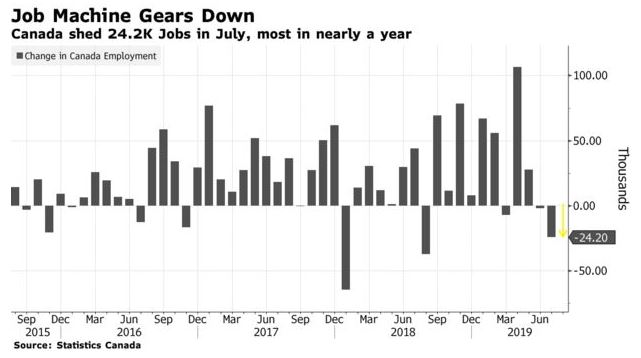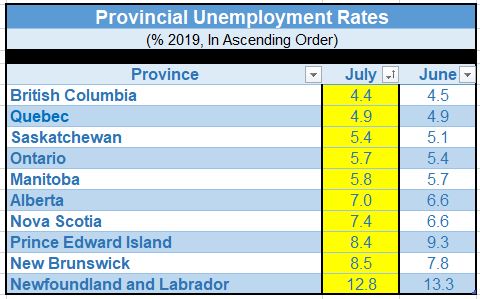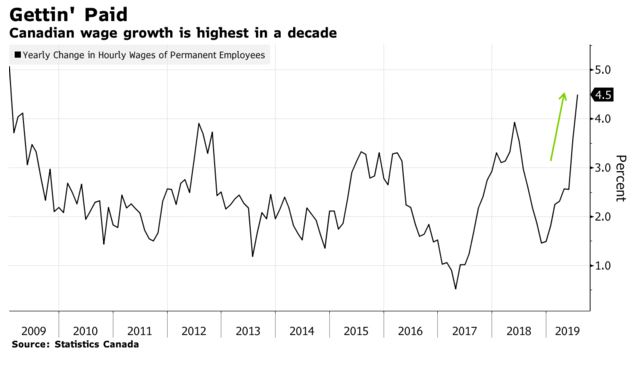What You Should Know About Collateral Charge Mortgages
I recently had clients who were refinancing their mortgage completely reject a very attractive offering from one of the big chartered banks.
Their reasoning? All of this bank’s mortgages are registered as collateral charges, and all of their online research into this topic spooked them completely.
Over the years, dozens of articles have been written on the topic of collateral mortgages, often tending to a negative bias. But as Rob McLister once said, and I agree with him, “collateral mortgages shouldn’t be portrayed as a supreme evil of the mortgage universe, when in fact they offer advantages to some.”
One can present persuasive arguments in favour or against collateral mortgages. But this client’s response compelled me to revisit the topic with fresh eyes and offer an updated perspective.
Mortgage loans are typically registered as a standard-charge mortgage or a collateral charge mortgage. So, let’s explore both types…
What Is a Standard Charge Mortgage?
A standard charge only secures the mortgage loan that is detailed in the document. It does not secure any other loan products you may have with your lender. The charge is registered for the actual amount of your mortgage.
If you want to borrow more money in the future, you’ll need to apply and re-qualify for additional money and register a new charge. There may then be costs, such as legal, administrative, discharge and registration fees.
If you want to switch your mortgage loan to a different lender at the end of your term, you may be able to do so by simply assigning your mortgage to a new lender at no cost to you.
Monoline lenders such as MCAP, First National Financial, CMLS and others default to standard-charge mortgages, unless offering a product such as MCAP Fusion (which has a re-advanceable HELOC component)
What Is a Collateral Charge Mortgage?
A collateral charge is basically a method of securing a mortgage or loan against your property. As explained here previously, “unlike a standard mortgage, a collateral charge is re-advanceable. That means the lender can lend you more money after closing without you needing to refinance and pay a lawyer.”
You can keep re-using this charge, and a new charge will only be required if you want to borrow more than the amount that was originally registered.
Most chartered banks offer both types of mortgages. A couple (TD Bank and Tangerine) only register their mortgages as collateral charges.
Most chartered banks also offer a type of combination home financing, which consists of a mortgage component and a line of credit component. (Actually there could be several components.) For example, the Scotia Total Equity Plan (STEP) mortgage.
If you have a Home Equity Line of Credit, you have a collateral charge mortgage.
A collateral charge can be used to secure multiple loans with your lender. This means credit cards, car loans, overdraft protection and personal lines of credit could also be included.
Arguments people make in favour of collateral charge mortgages
1) If you wish to borrow more money during the term of your mortgage, you can tap into your home equity without the expense of a mortgage refinance. You can save legal fees. (This is assuming of course, your personal credit and income are sufficient to qualify for more money.)
2) If you have a mortgage and a Home Equity Line of Credit (HELOC), it may be structured such that every time you make a mortgage payment, the amount you pay towards your principal balance is added to your HELOC limit. Large available credit, used wisely, is usually a good thing.
3) Collateral charges are often best suited to strong borrowers with lots of equity. They might readily access contingency funds at no cost down the road. This could be by increasing their mortgage loan amount or adding a home equity line of credit to the mix.
Ironically, our same clients who objected strenuously to the collateral charge actually fit this profile. After refinancing their current mortgage, they will still have $500,000 in equity left in their home. Who knows, down the road they may want a Home Equity Line of Credit or to increase their mortgage. If they register their mortgage today for more than its face value, they could avoid all refinancing costs at that time.
Arguments people make against collateral charge mortgages
1) Some people trash the collateral charge because there is often a cost to switching lenders at renewal. I think that’s overstated and no longer factual.
It’s so competitive out there, if you’re still considered strong borrowers, chances are someone is willing to eat the costs to move you.
Also, some lenders are now offering no-cost switch programs for collateral charge mortgages. That was not the case a few years ago, and the list of such lenders is growing.
And keep in mind the moment you wish to change any material aspect of your mortgage (for example, the amortization period or the loan amount), it is no longer considered a switch, but rather a refinance—so legal and appraisal costs are in play anyway.
2) Others argue you could be offered less competitive interest rates from your current lender at renewal than you will be from a new lender. Again, if you are a strong borrower, someone is going to offer you low rates, and your current lender, under pressure, will often match or beat competitive offers. For that reason I view this as less of a concern.
3) Some lenders register a collateral charge for more than the loan amount—to as much as 125% of the appraised value of your home. Some just do this by default and others may ask you to choose the dollar amount to be registered. The rationale being you will retain the benefits of your collateral charge, even as your home increases in value.
This is where you might pause to reflect.
If, down the road, your personal finances take a U-turn, or you no longer qualify for additional financing with your current lender, then you might find a high collateral charge impairs your ability to seek secondary financing elsewhere.
For example, we are presently working with two Ontario-based clients who need a private second mortgage, but the collateral charge registered against their home is roughly the same as the value of their home. Even if their current mortgage balance is very low, unless a private mortgage lender’s lawyer can cap the collateral charge at that lower balance, these homeowners will find alternate lender sources are unlikely to lend new money.
4) A collateral charge mortgage is not only a charge on your home, but can include other credit you have with that same lender. These lenders have a “right of offset,” meaning they can collect from the equity in your home on any financial products you have (or co-signed for) that are now in default.
There is also the potential that when asked to pay out the mortgage at the time you leave your collateral charge mortgage lender, they can also add in overdraft, credit card and line of credit balances. Resulting in less funds to you than you expected and may need.
That said, it is unclear how often this happens, if ever, to borrowers with spotless records.
Industry insider Dustan Woodhouse points out, “(Even) co-signing a credit card or car loan for somebody (who then stops making payments) carries a risk of a foreclosure action against your property as a remedy for what was perceived to be an unrelated debt.”
The Wrap
Collateral charge mortgages are here to stay. More lenders are adopting them and you should have a good understanding of what type of mortgage you are being offered. Most of the time, it probably will not matter much to you how your mortgage is registered.
For all the arguments about extra costs if you wish leave your lender at renewal, as long as your borrower profile is strong you should be able to avoid any incremental out-of-pocket costs.
But if you want to take a conservative approach, consider the following:
Choose a standard charge mortgage if it really bothers you, and if you have a choice of lenders.
Or, when given the option, just register the collateral charge mortgage for the actual face amount of the mortgage, rather than a much larger amount.
In closing, Woodhouse has some sage advice: “It is perhaps a key consideration that one should in fact not have all their banking, credit cards and small loans with the same institution as their mortgage…mortgage with Lender A, consumer debt/trade lines with Lender B, and perhaps any business accounts with Lender C.”
–ROSS TAYLOR
 Currently, all borrowers in Canada need to qualify for a new mortgage at the current Bank of Canada Benchmark Qualifying Rate or at their approved mortgage interest rate plus 2.0%, whichever is higher.
Currently, all borrowers in Canada need to qualify for a new mortgage at the current Bank of Canada Benchmark Qualifying Rate or at their approved mortgage interest rate plus 2.0%, whichever is higher. The youngest demographic of buyers is most affected by the new mortgage rules due to being at the early stages of their careers and, typically, receiving lower salaries compared to the other cohorts, making it harder to pass the stress tests.
The youngest demographic of buyers is most affected by the new mortgage rules due to being at the early stages of their careers and, typically, receiving lower salaries compared to the other cohorts, making it harder to pass the stress tests. While mortgage debt is trending downward, overall debt held by Canadians rose 4.3% year-over-year to $1.88 trillion.
While mortgage debt is trending downward, overall debt held by Canadians rose 4.3% year-over-year to $1.88 trillion.








